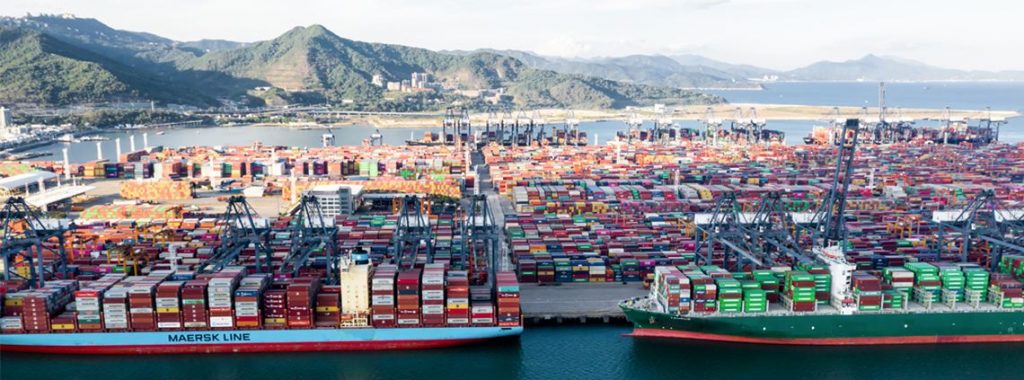Fears for global supply chains as outbreak hits key ports

A Covid-19 outbreak in southern China is threatening to cause fresh disruption for global supply chains as new lockdowns disrupt port services and delay deliveries.
Authorities in Guangdong province have shut down businesses to halt the spread, causing shipping delays in the ports of Shenzhen and Guangzhou.
Disruption at the ports, respectively the third and fifth busiest in the world, has sent already high shipping rates rocketing.
The cost of transporting a 40ft steel container by sea from Shanghai to Rotterdam now costs a record $10,522, nearly 300% higher than last year, according to Drewry Shipping estimates.
Shehrina Kamal of Everstream Analytics told CNBC waiting times for vessels to berth at the Yantian International Container Terminal in Shenzhen had “skyrocketed” from an average of 0.5 days to 16 days.
Global supply chains are already reeling from price rises caused by container shortages after the slump in demand in world trade in 2020 sent ripple effects cascading through 2021.
This has combined with the effects of Suez Canal blockage and inflationary prices of raw materials partially driven by expectations of explosive growth as countries such as the US recover from the pandemic.
On Wednesday China reported 15 new coronavirus cases in the province of Guangdong.
The province is a major industrial centre, which accounts for about 24% of China’s total exports.
It had already imposed restrictions several weeks ago to contain the spread of the Delta variant originally detected in India.
Factory costs in China rose by 9% in May – the highest rises for more than a decade.
Zhang Zhiwei, chief economist at Pinpoint Asset Management, told CNBC: “I think the risk of supply chain disruption is rising, and export prices/shipping costs will likely rise further. Guangdong province plays a critical role in the global supply chain.”
Guangdong ports including Shekou, Nansha, Chiwan, and Yantian, have effectively banned vessels without prior reservations, which is likely to raise shipping costs further, Reuters reported.

